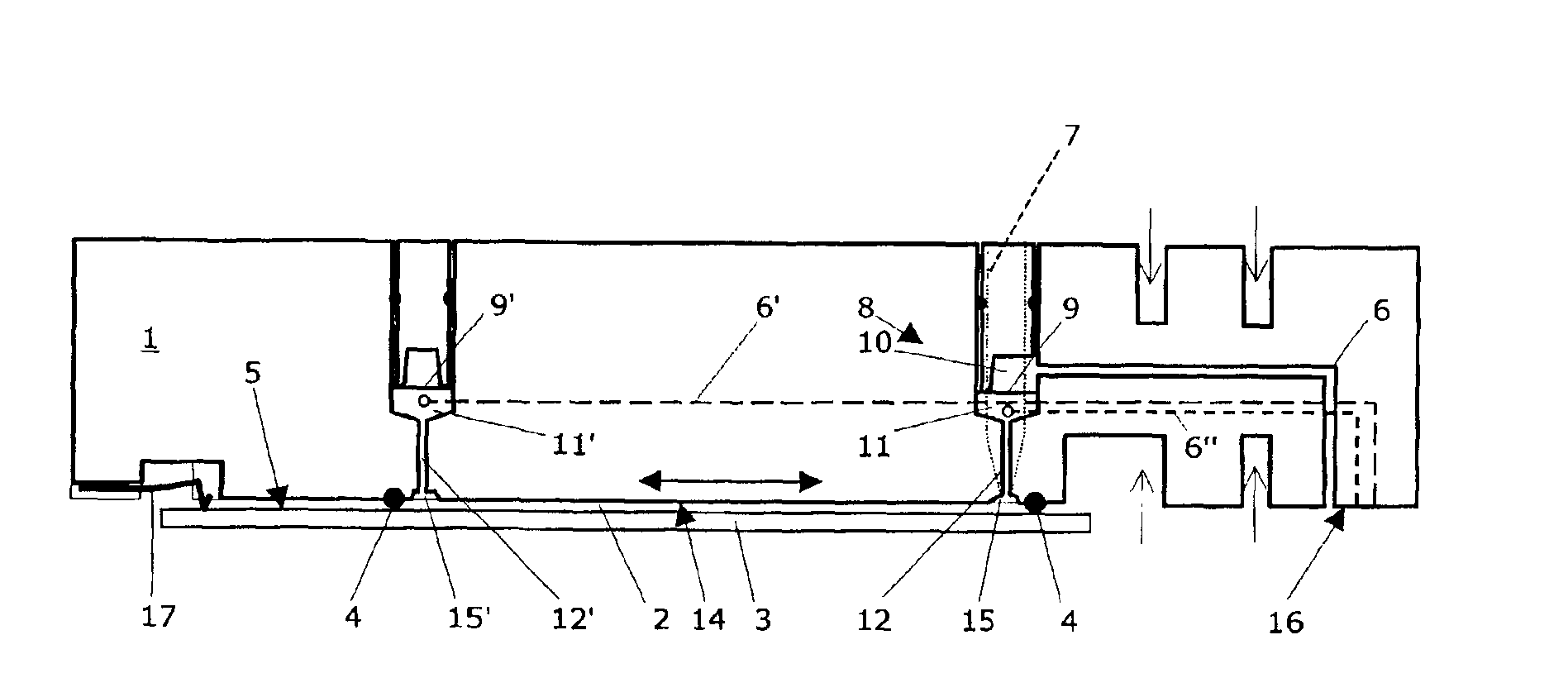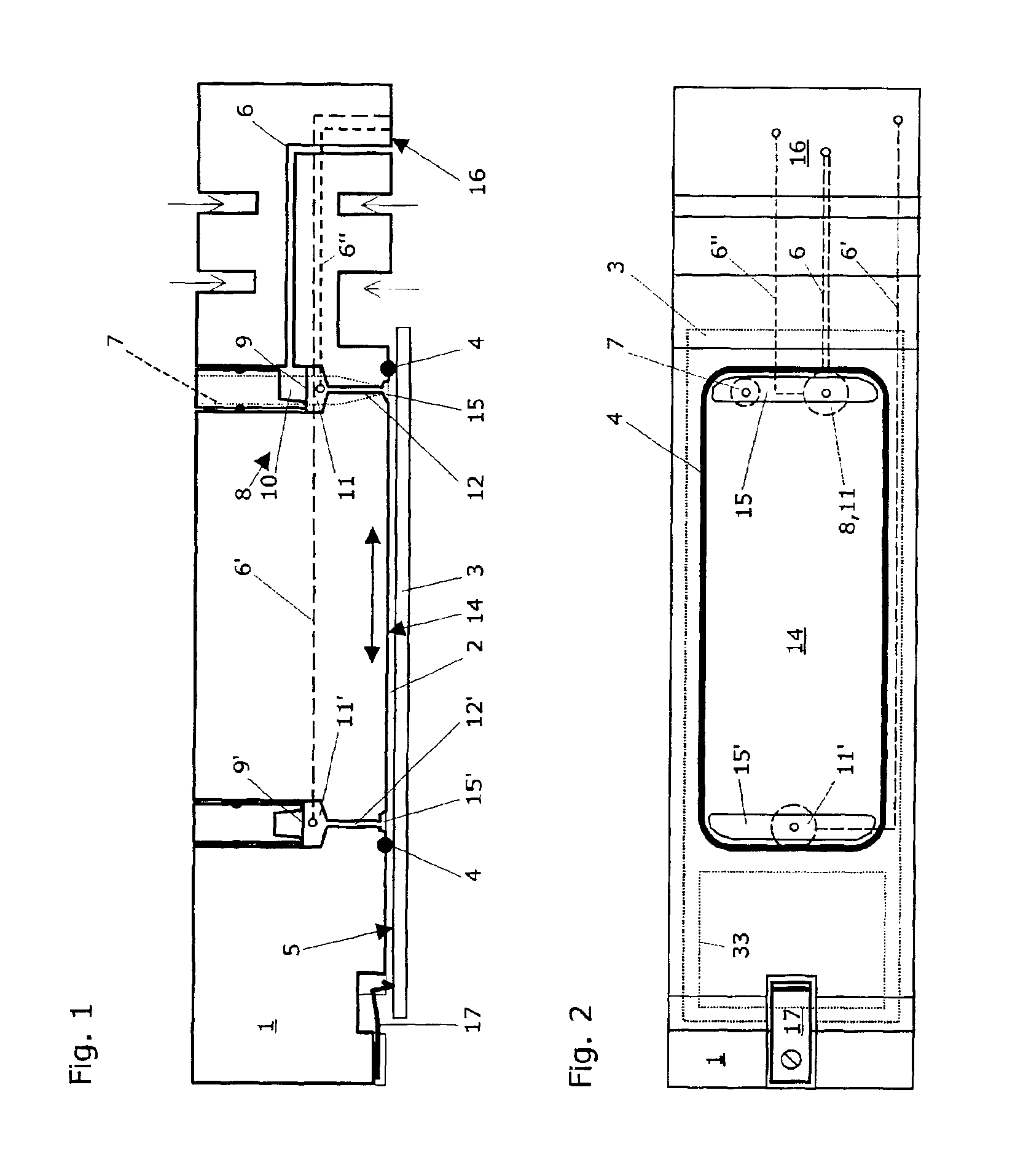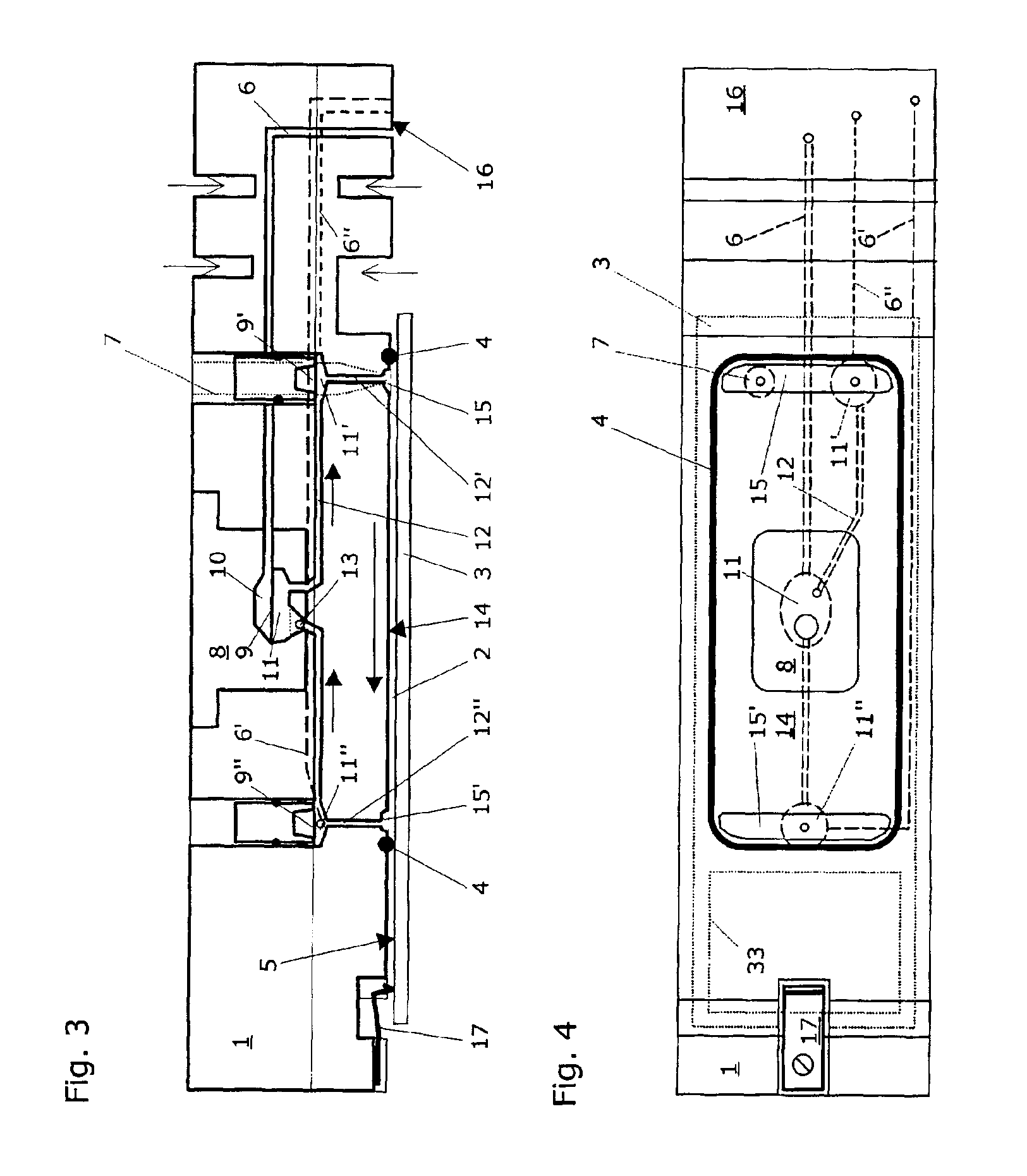Device for providing a hybridization chamber, and process unit and system for hybridizing nucleic acid samples, proteins, and tissue sections
- Summary
- Abstract
- Description
- Claims
- Application Information
AI Technical Summary
Benefits of technology
Problems solved by technology
Method used
Image
Examples
first embodiment
[0023]FIG. 1 shows a perpendicular longitudinal section through a device 1 according to the present invention according to a This device is used for providing a hybridization chamber 2 for hybridizing nucleic acid samples, proteins, or tissue sections on a slide 3. Device 1 is implemented so that it is movable in relation to this slide 3 (in this case, pivotable around an axis, cf. FIG. 7A), so that hybridization chamber 2 may be opened and closed by the simplest possible movement. An annular sealing surface 4 is used for sealing hybridization chamber 2 by being applied to a surface 5 of this slide 3. This sealing surface 4 may be an offset surface of device 1 which lies flat on surface 5 of slide 3 (not shown). However, an annular seal is preferably used as sealing surface 4 (shown here as an O-ring and referred to the following as seal 4), or a lip seal may, for example, also be used as an alternative to this. The device includes lines 6 for supplying and / or removing media to and...
second embodiment
[0026]FIG. 3 shows a perpendicular longitudinal section through a device 1 according to the present invention according to a Agitation device 8 is implemented here as a membrane pump and includes flow-limiting means 13, which allow a preferred flow direction (filled arrows) of the liquids moved. Such flow-limiting means 13 may include return valves having balls (shown in FIG. 3), membranes, etc. and are known per se. A second and third agitation chamber 11′,11″, which are provided with membranes 9′,9″, are preferably connected via a second and / or third agitation line 12′,12″ to hybridization chamber 2. If a pressure surge now pushes first membrane 9 into first agitation chamber 11, this pulse (thanks to flow-limiting means 13) is only transmitted to the specimen liquid in hybridization chamber 2 via first and second agitation line 12,12′. This liquid yields somewhat toward third agitation line 12″, fills it, and flows back into first agitation chamber 11 via third agitation chamber...
third embodiment
[0040]FIG. 9 shows a specimen injection device having a two-part valve 49, during pipetting of the specimen liquid into specimen receiving vessel 42 (cf. FIG. 9A). A first part 50 of this two-part valve 49 is in its lowermost position and seals specimen supply line 7 of device 1. A preferably defined volume of the specimen liquid flows via pipette tip 51 into chamber 52 between specimen receiving vessel 42 and first valve part 50 via line 54, the surface of the liquid defining an appropriate level 53 and the excess air escaping via line 54′.
[0041]An excess pressure medium (e.g. nitrogen gas) is introduced into the space between first valve part 50 and annular second valve part 56 via connection 55, which causes second valve part 56, which has the excess pressure medium applied to it over a larger area, to yield downward (cf. FIG. 9B), until it touches the specimen liquid and is braked by it. At the same time, lines 54,54′ are automatically closed. The excess pressure, which is stil...
PUM
 Login to View More
Login to View More Abstract
Description
Claims
Application Information
 Login to View More
Login to View More - R&D
- Intellectual Property
- Life Sciences
- Materials
- Tech Scout
- Unparalleled Data Quality
- Higher Quality Content
- 60% Fewer Hallucinations
Browse by: Latest US Patents, China's latest patents, Technical Efficacy Thesaurus, Application Domain, Technology Topic, Popular Technical Reports.
© 2025 PatSnap. All rights reserved.Legal|Privacy policy|Modern Slavery Act Transparency Statement|Sitemap|About US| Contact US: help@patsnap.com



